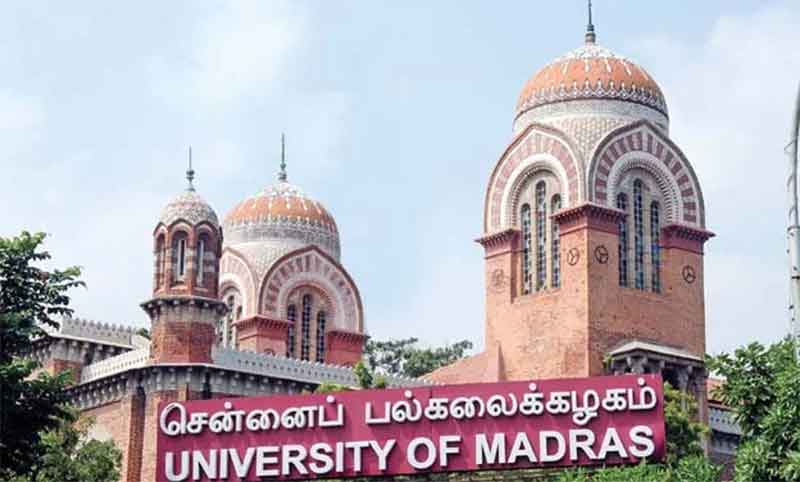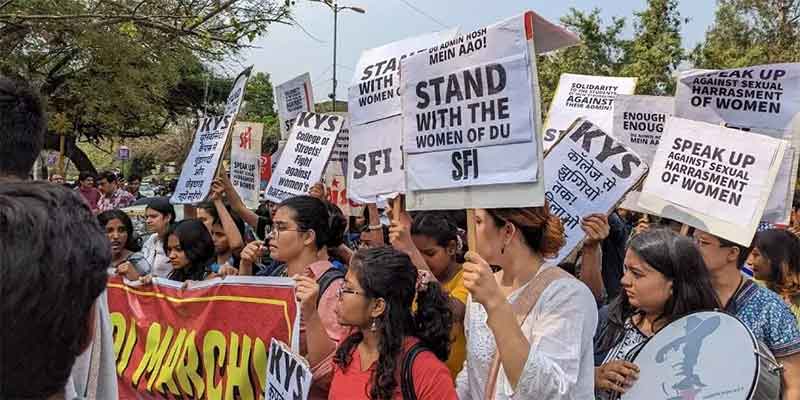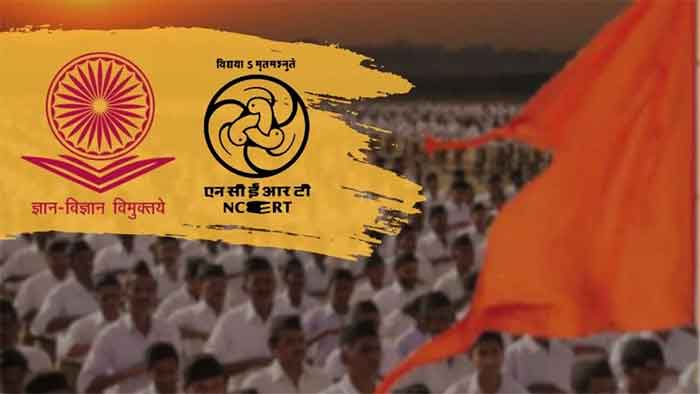
That academia which preaches justice is itself an unjust environment has been pointed out by some of the academia themselves (Kumar 2016, Guru 2002). The major complaint is that the marginalised do not get due recognition. I published a book in 2011 out of my PhD (Khora 2011). However, it has not been referred in academic writings in India in sociology of education. While I’m sure about my book it is also true that books published from prestigious publishers like OUP are considered the ideal standard. My book is not from OUP. But it is also true that we frequently come across citation of unpublished Phd thesis.
A handful of academicians, mostly located in a handful of universities establish the academic standard just like a couple of big players can establish the ‘industry standard’. Currently India has little control over the academic standard which is set in the west.
There is no equivalent of RTI and ‘social audit’ in academics by which the academic rulers can be held accountable by the subjects. Dalits complain about discrimination and bring forth alternative standard of proof to buttress their claim. However, we know from sociology of science that rival paradigms are not entirely commensurable. In law, neither the complainant nor the accused can change the standard of proof. Therefore, the existing academic elite can escape by pointing out the change in standard of proof. For example, they can say that they are not under any obligation to recognise the worth of books and articles published from non-reputed sources. However, if it is shown that the elite do not obey the very rules, they prescribe then dominance is proved. The agreed standard of proof in academia is citation of books and articles published from reputed sources and theories that is well established, especially in the west. If it is shown that the Indian academia can move on without citing well-established books and articles and theories then the point is made about dominance.
Social audit is an example of bottom-up accountability. The bottom-up accountability in science works like this – going to the moon and making atomic bombs are great achievement; but is that what the wo/men on the street want from science? The bottom-up accountability in social science can read like this – are you citing some of the essential books and articles, albeit from reputed sources if that’s what is your standard? Are you dealing with some of the important social issues?
I will take the following two books and one theoretical perspective for my inquiry.
1- Robin Alexander (2001), Culture and Pedagogy: International Comparisons in Primary Education. Malden, MA: Blackwell Publishers.
This book of more than 700 pages is a study of schooling in England, France, India, Russia, and the United States. This is not based on some quantitative data but follows an ethnographic approach. My guess is that it will cost at least a crore to do such a multi country ethnographic study. Prima facie this should have been the first stop if someone were to do research in sociology of education.
2- OECD (2005), Teachers Matter: Attracting, Developing and Retaining Effective Teachers. Paris
To underscore the importance of school teachers, the OECD commissioned country background reports on teachers from 25 countries. The final report was distilled out of all these country background reports. Also, a big conference on ‘Teachers Matter’ was held in Amsterdam 18-19 November 2004 (https://www.oecd.org/netherlands/teachersmatteroecdconferenceinamsterdam18-19november2004.htm). This report gives an idea of the situation of school teachers not only in the western world but also countries like Japan and South Korea. Clearly anybody doing research on school teachers, the effect of neoliberalism on teachers would simply be happy to lay his or her hand on it.
3- Critical Race Theory (CRT) – This is a theoretical trend in the USA for at least 40 years. But we can say that Indian academia should have been aware about this after 2001 after the publication of Delgado, and Stefancic (2001). CRT can upset both liberalism as well as Neo Marxism. When CRT is applied to sociology of education, it upsets the concept of cultural capital by Pierre Bourdieu (a Neo Marxist). ‘So, are there forms of cultural capital that marginalized groups bring to the table that traditional cultural capital theory does not recognize or value? CRT answers, yes’ (Yosso,2005:76-77). As of now cultural capital is some sort of conceptual diu ex machina in Indian sociology of education.
Robin Alexander (2001) and OECD (2005) were the mainstay of my PhD while I became aware about the CRT in the last few years. One can see that these three are not something esoteric but the proverbial 800-pound gorilla.
The above mentioned two books and one theoretical perspective was missing in Contemporary Education Dialogue, a leading journal on sociology of education published from Sage. The search was done in https://journals.sagepub.com/home/ced which is the journal home page. Next the search was done in Journal of Educational Planning and Administration, another leading journal. The website http://niepa.ac.in/Pub_Jepa.aspx contains the link to journal volumes since 2002 except in one case where I found that in the link for July 2009, number 3, volume XXIII, what is uploaded is April 2009 number 2.
As on February 21, 2022, out of 25 times the journal published since 2002, Robin Alexander (2001) is mentioned twice – once in a book review and another time in an article. The article is David Stephens (2007). The review of the OECD (2005) report was done in volume XXII, number 1, January 2008. The article where it was mentioned was actually about higher education (Mahapatra, Singh, Rai, 2015). While surfing the journal I found an article titled Teacher Education in Neo Liberal India (Kumar,2016). The article discusses NCTE measures but doesn’t refer to Poonam Batra’s writings. Also, this was the right place to mention OECD (2005) report because it is a discussion about neoliberalism and teachers.
Economic and Political Weekly (EPW) also publishes articles on education. I found the search was more effective in Google rather than EPW website. If “critical race” site:epw.in is put in Google it will bring all articles from EPW website containing in its entire text (not only title, author, keywords) containing exactly critical race and not either critical or race. Robin Alexander (2001) and OECD (2005) were not found when the search was done. Critical race was mentioned only once. ‘A historical analogy from the civil rights discourse would be the critical race theories which have explained institutional racism, bringing together a coherent theoretical analysis’ (Kuriakose, Iyer 2020:32).
I didn’t search Robin Alexander (2001) and OECD (2005) in Sociological Bulletin because education is not the focus of this journal. I searched only for the mention of ‘critical race’. Since I have published one article (Khora, 2012) in the Sociological Bulletin I can be sure about phrases in my article. I have used the phrase ‘leading without authority’ in my article. When I typed leading without authority it brought 480 items because it will bring those articles where either of these words will be there. But when I typed “leading without authority” then the result was one – my article. Similarly, when the search was for critical race then the result was 282 items (articles and other things like book review etc) but when the search was for “critical race” the result was ‘your search didn’t return any results’.
Similarly, I searched for the mention of ‘critical race’ in the leading journal Contributions to Indian Sociology and found it mentioned only once. ‘Finally, the intellectual contribution of critical race theory is discussed as follows. Some of the finest scholarship in India emerged from a caste and gender perspective (Chakravarti 2003; Rege 2006). But this cannot be read off as a mirror image of critical race theory, just as identity politics here was no mirror image of identity politics in the West’ (Chaudhuri, 2016:353). The article didn’t cite any source on critical race theory. The author is aware about critical race theory but not citing any reference like Delgado, Stefancic (2001) which can lead the reader to explore further. I also found another passage which defies my comprehension. ‘Mention can also be made of sociology of education that many within the field feel has been short charged (Chanana 2002; Nambissan and Rao 2013) and of the unanticipated engagement with question of pedagogy and the challenges of India’s transforming classrooms’ (ibid:347). Surely, I’m not competent to comment on the rest of the article. But in spite of being in sociology of education for two decades I am at a loss about what is meant by the statement that ‘sociology of education has been short charged’. Did some people cheat sociology of education?
People don’t write only in journals. There are also book chapters and books. Therefore, the writings in Google Scholar of some top scholars were scanned to find the citation and mention. This was done only with respect to the two books – Robin Alexander (2001) and OECD (2005) which pertains to the field of sociology of education. The following scholars’ writings were scanned- Aman Madan, Geetha Nambissan, Poonam Batra, A R Vasavi. These two books do not find any citation or mention in material available in the google scholar as of February 22, 2022. It was interesting that A R Vasavi (2015) doesn’t site the work of Padma Sarangapani (2003) especially when the article is based on literature review having an India focus.
The OUP edited book of Nambissan and Rao (2013) has the aim of stock taking of the field of sociology of education in India. Robin Alexander (2001) and OECD (2005) don’t find a citation or mention. Critical race finds only a mention en passant. ‘Critical, conflict, interpretive, and critical race and feminist (especially Marxist feminist, Dalit feminist, and Black feminist) theories that mark the contemporary theoretical field in Western SoE need to be critically explored for developing relevant, reflexive frameworks (Velaskar, 2013:127).
Geetha Nambissan (2010) has a chapter in The Routledge International Handbook of the Sociology of Education (Apple, Ball and Gandin, 2010). The publication date is 2010. This handbook has a chapter Education and Critical Race Theory (Gillborn and Ladson-Billings,2010:37-47). Even before this in 2004 Stephen J. Ball writes in the preface of The Routledge Falmer Reader in Sociology of Education – ‘Fourth, I am aware that some important sub-specialisms are not foregrounded: race for example and disability. Race, however, is a significant issue in some of the chapters and another Reader in this series (Reader in Multicultural Education, edited by David Gillborn and Gloria Ladson-Billings) is devoted to race and education’ (Ball, 2004: IX). One can see that at the international level they are careful not to omit critical race theory.
In spite of the profusion of studies on caste and ‘caste in education’, why there is no mention of critical race theory (CRT)? Recognition of CRT will elevate caste from an empirical fact to a prime theoretical axis and Ambedkar as the original theorist. It was Ambedkar’s statement ‘turn in any direction and caste is the monster which will cross your path’. CRT will say as much about race.
Conclusion
The equivalent of ‘who will police the police’ or ‘judge the judge’ in academics would be ‘who will review the reviewer’. The present method of ‘citation audit’ can be a way of academic accountability and justice.
References
Alexander Robin, 2001, Culture and Pedagogy: International Comparisons in Primary Education. Malden, MA: Blackwell Publishers.
Apple Michael W., Stephen J. Ball, Luis Armando Gandin,(Eds), 2010, The Routledge International Handbook of the Sociology of Education, Routledge.
Ball Stephen J.,(Ed), 2004, The Routledge Falmer Reader in Sociology of Education, London: Routledge Falmer.
Chaudhuri Maitrayee, 2016, Feminisms and Sociologies: Locations and Intersections in a Global Context, Contributions to Indian Sociology 50(3): 343–367.
Delgado, Richard; Stefancic, Jean, 2001, Critical Race Theory: An Introduction (1st Ed.). New York University Press.
Gillborn David and Gloria Ladson-Billing, 2010, Education and Critical Race Theory. In Michael W. Apple, Stephen J. Ball, Luis Armando Gandin,(Eds), 2010, The Routledge International Handbook of the Sociology of Education, Routledge:37-47.
Guru Gopal,2002, How Egalitarian are the Social Sciences in India? Economic and Political Weekly, 37 (50):5003-5009.
Khora Sthabir, 2011, Education and Teacher Professionalism, Jaipur: Rawat.
Khora Sthabir, 2012, Education Management and Leadership in a School District in Odisha, Sociological Bulletin, 61 (2): 279–298.
Kumar Amruth,2016, Teacher Education in Neo Liberal India, Journal of Educational Planning and Administration, XXX (4): 331 – 337.
Kumar Vivek,2016, How Egalitarian is Indian Sociology? Economic & Political Weekly, LI (25):33-39.
Kuriakose Francis, Deepa Kylasam Iyer, 2020, Rights Through Resistance: What Lies Beyond Legalism for The LGBT Movement? Economic & Political Weekly, LV (17):28-34.
Mahapatra KM, RP Singh, JSP Rai, 2015, A Model to Evaluate Teaching and Institutional Performance in Higher Education -A Case Study of HBTI Kanpur, Journal of Educational Planning and Administration, XXIX (3):247 -270.
Nambissan Geetha B., 2010, The Indian Middle Classes and Educational Advantage: Family Strategies and Practices. In Michael W. Apple, Stephen J. Ball, Luis Armando Gandin,(Eds), 2010, The Routledge International Handbook of the Sociology of Education, Routledge:285-295.
Nambissan Geetha B. And S. Srinivasa Rao, (Eds.), 2013, Sociology of Education in India: Changing Contours and Emerging Concerns, New Delhi: OUP.
OECD (2005). Teachers Matter: Attracting, Developing and Retaining Effective Teachers, Paris.
Sarangapani Padma, 2003, Constructing School Knowledge An Ethnography of Learning in an Indian Village, New Delhi: Sage Publications.
Stephens David,2007, Scaling of Innovation in EFA – The Importance of Culture and Context, Journal of Educational Planning and Administration, XXI (4): 329 – 351.
Vasavi A R, 2015, Culture and Life of Government Elementary Schools, Economic & Political Weekly, L(33): 36-50.
Velaskar, Padma, 2013, Sociology of Educational Inequality in India: A Critique of New Research Agenda In Geetha B. Nambissan and S. Srinivasa Rao (Eds.), Sociology of Education in India: Changing Contours and Emerging Concerns, New Delhi: OUP: 103-129.
Yosso Tara J.,2005, Whose Culture Has Capital? A Critical Race Theory Discussion of Community Cultural Wealth, Race Ethnicity and Education, 8(1):69–91.
Sthabir Khora,Professor,School of Education, Tata Institute of Social Sciences, Deonar
















































